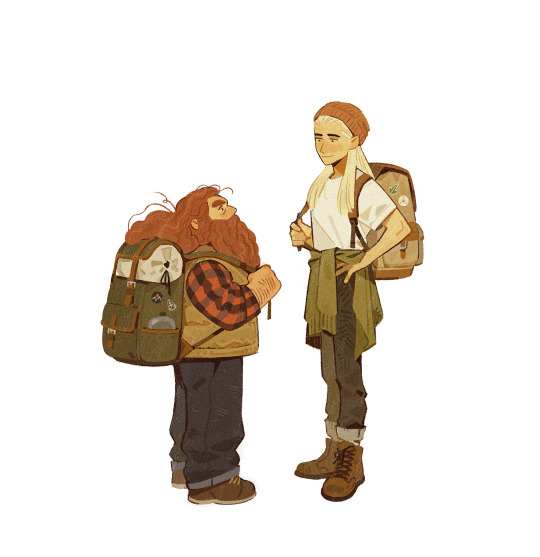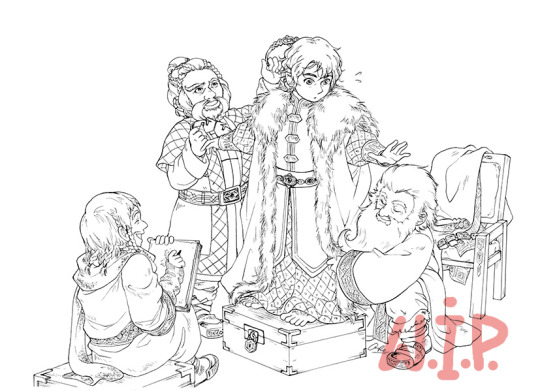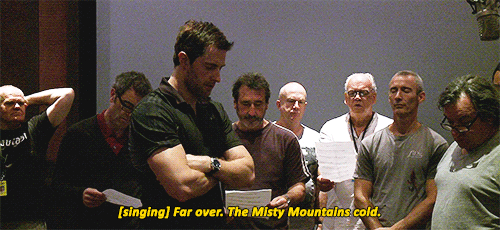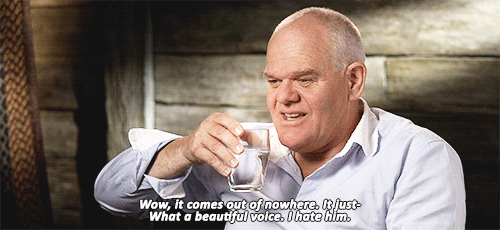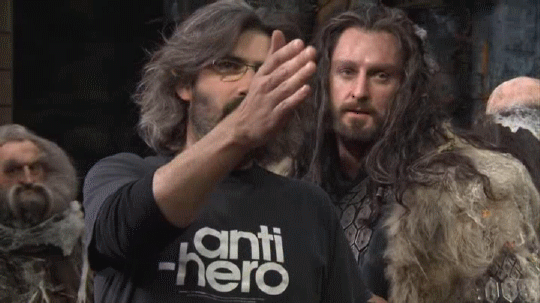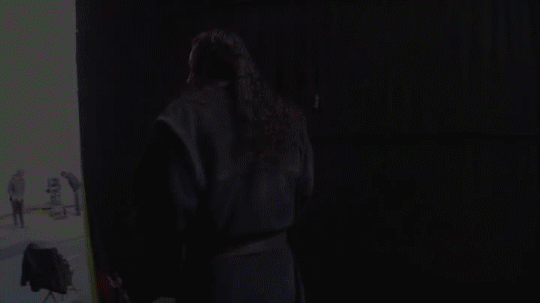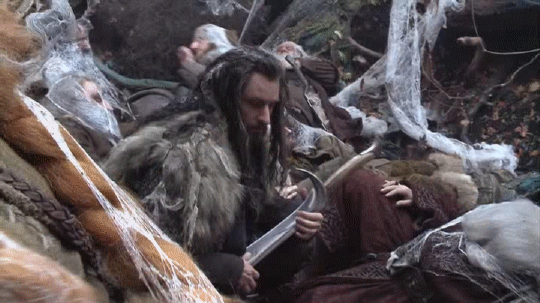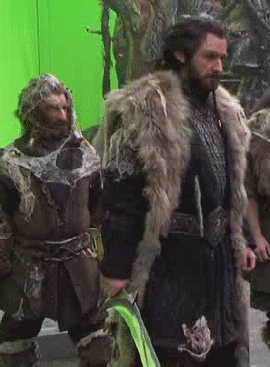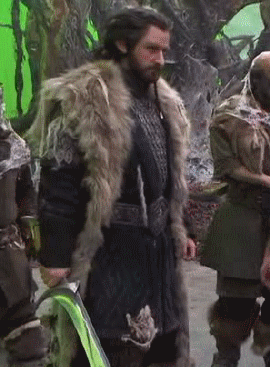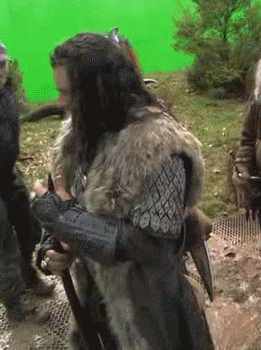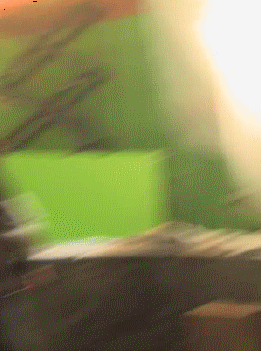Text
Happy Dwarvish New Year!
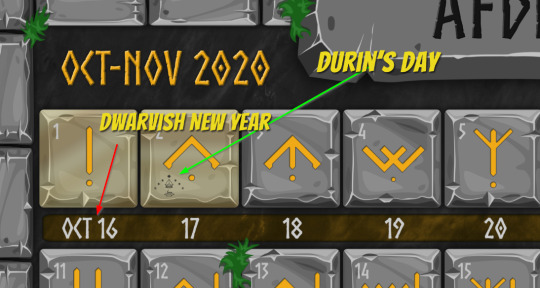
My Dwarvish Calendar says today is the first Day of the Dwarvish New Year and tomorrow (moon and sun willing) is Durin’s Day! Roll in the kegs lads and lasses, it’s time for a feast! 🍻 Êrâs-Nar Gêdul! (Happy New Year!) 🥳
60 notes
·
View notes
Text
Analysis of "Stone Tongue" in The Rings of Power
In Episode 7 of The Rings of Power we get our first real taste of the Neo-Khuzdul created for this series.
Here Durin III calls it "Stone-tongue".
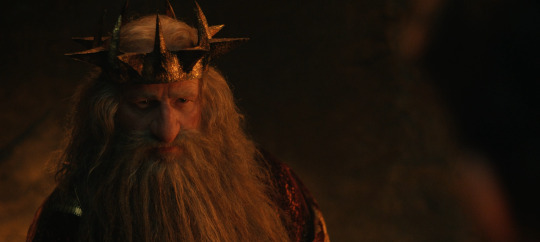
The two lines of Stone-tongue given by these two Dwarf Lords are:
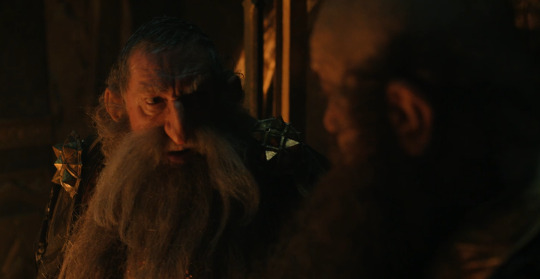
Tildi dahâkh? [Five centuries?]
Kama shêth, kumnya putha imâghum [Quite a promise, if they can keep it…]
I have no idea who wrote this Neo-Khuzdul, but it clearly does not use any of the currently established forms or words.
Regardless of them opting for a new form (which is fine), sadly, the pronunciation of these words should have been somewhat different though. That is, if we are to follow the language specifics J.R.R. Tolkien detailed in the appendices (which this series prides itself on for respecting).
A detailed analysis of these two lines.
1) Leith McPherson and Jean Goodwin (the dialect coaches on this series) seem to have gone with the voiceless velar fricative [x] for the Khuzdul "kh" and the voiceless dental fricative [θ] for the Khuzdul "th".
Though common in many other Semitic languages (which Khuzdul was designed to be) it should NOT be present in Tolkien's Khuzdul.
Tolkien clearly states in the appendices that the Dwarvish "kh" and "th" are aspirates and that Dwarvish did not possess the fricative sounds of other Middle Earth languages.
In fact he specifies that these should be pronounced "more or less as in backhand and outhouse" (so not like "loch" or "things", as they have done here).
2) Complete lack of the schwa or open-mid back unrounded vowel sound in these lines (vowels like those heard in the English "butter") "which were frequent in Dwarvish".
3) Use of the sound "p" - though not impossible, but slightly odd if this needs to represent actual Khuzdul, as it's not present in any canon Khuzdul word.
4) Word order. Without further details on these words it would appear that the order used here is a mirror of English.
An example of this is "tildi dahâkh" - as "centuries" is a plural noun and dahâkh appears to copy the typical plural noun pattern seen in other Khuzdul words, it would appear the word "tildi" here is the number. While in common Neo-Khuzdul that would be noun followed by number, unlike English.
5) Some vowel sounds are wrong/mispronounced.
For instance the "ê" in "shêth", should be pronounced as the [e:], not as the near open front vowel [æ].
This may have been a mispronunciation from the actor though.
6) Verbs and Pronouns are (apparently) not as synthetic as I would expect. The line "kumnya putha imâghum" likely means "if they can keep it", which would have been "nî katamrazînhu" in the previously established Neo-Khuzdul. Here we see "katamrazînhu", as a good example of the synthetic nature of this Semitic language, where several elements are combined into one word (Ka = can, tamrazîn = they keep, hu = it). Here it would appear, if we can conclude that "kumnya" means "if", that "putha" is the pronoun and "imâghum" the verb.
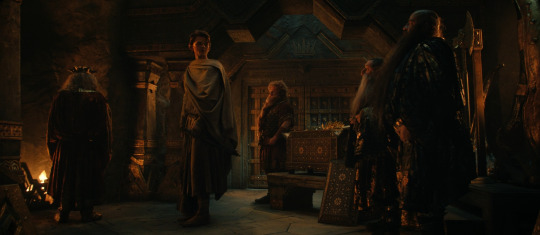
Overall, though the general flavor of the language sounds Semitic (which I'm thankful for), it's a shame the pronunciation makes some rather big mistakes. What the words themselves are concerned, here as well, at first glance, there is a clear Semitic feel to it, sadly word order and several other oddities make for a poor linguistic end result.
As such, I'll not be updating my Neo-Khuzdul dictionaries any time soon to include some of these words or verb forms, as most of these would go against Tolkien's established lore for the language. With the exception perhaps of the word "dahâkh" (the only word that seems to be using the correct patterns and is correctly pronounced), which is (it must be said) a better word for "centuries" than the compound I was using (the rather cumbersome "mihokherasanrât" - lit. "hundred-year-cycle"), in addition to the fact that the radical combination [DHKh] was not in use anyway.
Let's see if we get more "Stone Tongue" in future episodes. If so, expect an analysis like this one.
Ever at your service,
The Dwarrow Scholar
143 notes
·
View notes
Audio
Misty Mountain / Song of the Lonely Mountain — David Arkenstone
39K notes
·
View notes
Text

I had to find a picture of this 2017 article again because it's just so iconic.
123K notes
·
View notes
Text
A Khuzdul Vocabulary Primer
Here is a very basic list of khuzdul words adapted for common use. Please note that this list is simplified, and is neither complete nor definitive. I’m no expert, I’ve just researched and organized it for you. Sources are cited at bottom- check them out for more info and uses in Tolkien’s text!
Aglâb: spoken language
ai-mênu: upon you
aya: upon
Azaghâl: warrior
‘Azanul- : of the shadows
Baraz: red, ruddy
Barazinbar: Redhorn
Bark: axe
Baruk: axes of , ie, Baruk Khazâd! “Axes of the Dwarves!”
Bizar: dale, rill, small river valley
Bund: head
Bundushathur: “Cloudyhead”, one of the mountains above Moria
Bûz: root
Duban: valley
Dûm: mansion, hall
Felek: hew rock
Felak: 1) (n.) a tool like a broad-bladed chisel, or small axe-head without haft, for cutting stone, 2) (v.) to use this tool
Felakgundu / Felaggundu: cave-hewer, miner
Gabil: “great”
Gamil: old
Gathol: fortress
Gundu: underground hall
Gunud: delve underground, excavate, tunnel
Iglishmêk: a gesture-code used by the Dwarves.
Inbar: horn
Khazâd: Dwarves; their name for themselves
Khazad-dûm: “Dwarrowdelf”, Moria
Khazâd ai-mênu!: “The Dwarves are upon you!”, Dwarvish battle-cry.
Kheled: glass
Khuzd: Dwarf
Khuzdul: Dwarvish
Kibil: silver (metal)
Kibil-nâla’: silverlode; the river Celebrant
Mah: create (verb)
Mahal: Dwarvish name of Aulë, aka The Maker
Mazarbul: Hall of Records, library; ie, The Chamber of Mazarbul in Moria
mênu: you (acc. pl.)
Nargûn: “Mordor”
Narag: black, dark
Nibar: horn
Rakhâs: Orcs
Rukhs: Orc
Salôn / sulûn: fall, descend swiftly
Shathûr: cloud(s)
Sharah: bald
Shimak: gestures
Sigin: long
Sigin-tarâg: “the Longbeards”
Tarâg: beards
Thark: staff
Tharkûn: Dwarvish name of Gandalf, said to mean “Staff-man”
Tûm: bold, delving
Tumunzahar: “Hollowbold”, Dwarvish name of Nogrod
Turg: beard
-u: in/of (conj. suffix)
u-: and (conj. prefix)
Uzbad: Lord, Lord of
Zahar: Hollow
Zâram: lake, pool
zarab: keep, document, record (verb)
Zigil: silver (color)
Zirak: spike
Zirak-zigil: “Silvertine” one of the mountains over Moria
Sources:
“An analysis of Dwarvish” by Magnus Åberg; www.forodrim.org/daeron/md_khuzdul.html
“Khuzdul - the secret tongue of the Dwarves” by Helge Kåre Fauskanger; www.folk.uib.no/hnohf/k2.htm
1K notes
·
View notes
Text
it fucks me up that tolkien only died in 1973. dude has the vibe of a victorian scholar who wrote all his manuscripts by candlelight but then you look him up and realise that he knew what color tv was. what the fuck.
291K notes
·
View notes
Text
very concerned about all this orb pondering. have we as a society learned nothing from saruman?? from denethor????
12K notes
·
View notes
Text
very concerned about all this orb pondering. have we as a society learned nothing from saruman?? from denethor????
12K notes
·
View notes
Text
the pure MAGIC of fellowship of the ring is unparalleled... the unbelievable comfort of the shire... the heavenly healing of rivendell... the awe of the argonath... the sheer wonder of the halls of khazad-dûm.... the haunting memory of the ruins of men and elves scattered across middle earth .... the power of hope in the companionship of nine unlikely travellers...... the incredible faith and devotion and love overriding all the terror and hurt...........
9K notes
·
View notes
Photo
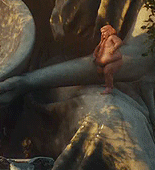
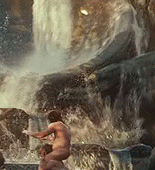

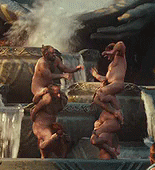
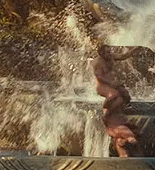
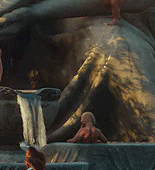
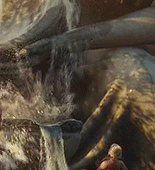
More dwarves bathing in Rivendell on request.
4K notes
·
View notes
Audio
Chip the glasses and crack the plates!
Blunt the knives and bend the forks!
That’s what Bilbo Baggins hates —
Smash the bottles and burn the corks!
Cut the cloth and tread on the fat!
Pour all the milk on the pantry floor!
Leave the bones on the bedroom mat!
Splash the wine on every door!
Dump the crocks in a boiling bowl;
Pound them up with a thumping pole;
And when you’ve finished, if any are whole,
Send them down the hall to roll!
That’s what Bilbo Baggins hates!
So, carefully! carefully with the plates!
That’s what Bilbo Baggins hates!
So, carefully! carefully with the plates!
38K notes
·
View notes
Text
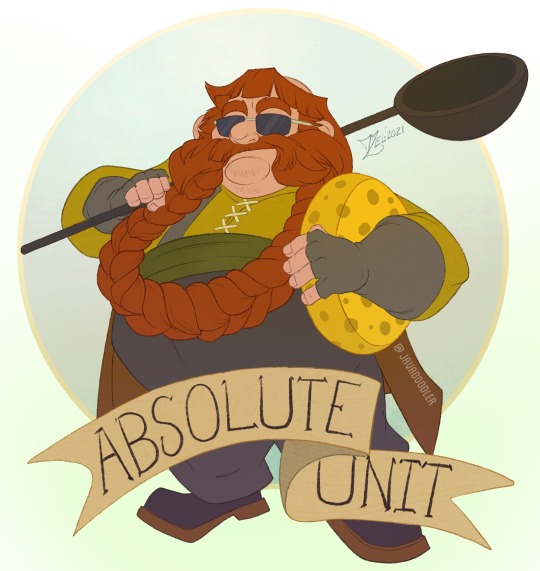
This evening’s doodle-fun. I admittedly enjoy all of the dwarf designs from The Hobbit trilogy, but Bombur is especially delightful. I mean, look at this Absolute Unit. 😎 ☕️🎨
480 notes
·
View notes
Audio
#i am in an exclusive relationship with the very bottom note of Richard Armitage’s vocal register
87K notes
·
View notes
